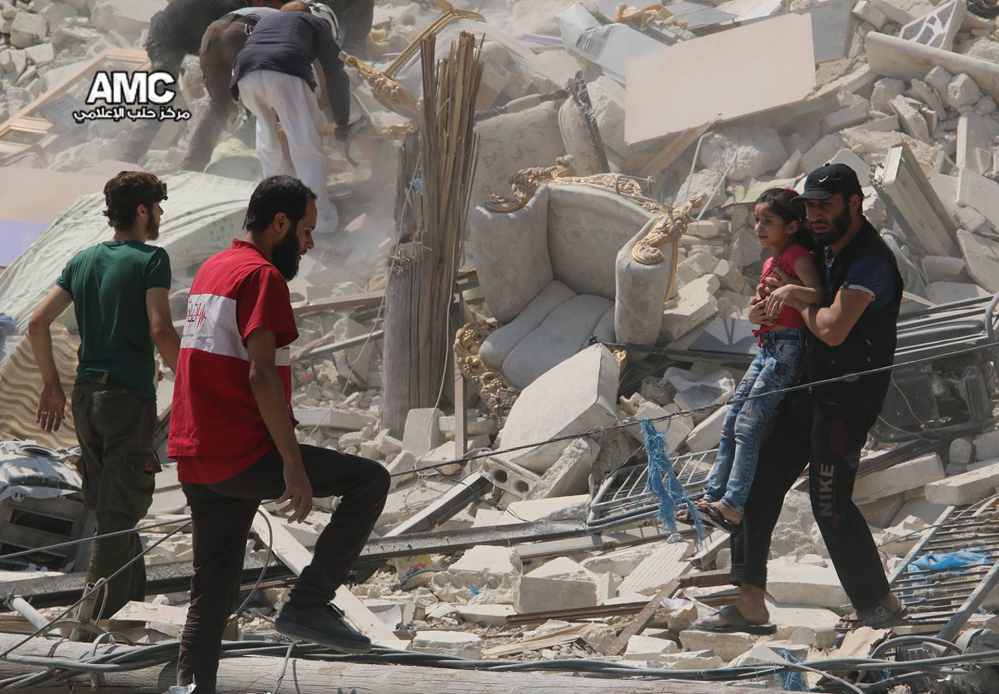Syrian warplanes appeared to target a funeral Saturday morning in east Aleppo, killing dozens of civilians who had come to mourn the deaths of at least 13 people days earlier.
The attack on Bab al-Nayrab, a Syrian suburb named after one of the city’s ancient gates, took place in waves, activists said.
The first barrel bomb hit a funeral procession, the second landed as rescue workers arrived. Doctors said the preliminary death count was 25.
Aleppo is one of the Syrian war’s most important battlegrounds, divided by government forces in the west and armed opposition groups in the east. According to monitoring groups, more than 300 civilians have been killed in fighting there this month.
The United Nations’ special envoy for Syria, Staffan de Mistura, has urged warring parties to state by Sunday whether they will commit to a 48-hour humanitarian cease-fire across the city.
On Friday, a video of two young brothers, inconsolable as they mourned the death of family members in a Thursday airstrike on Bab al-Nairab, went viral. Sobbing, the boys clutch each other tightly as the hubbub of their hospital ward continues all around.
Underscoring the tragedy that had befallen so many families left in Aleppo, it appeared that the boys came from the same family who were in the streets Saturday to mourn their dead, only to be hit by airstrikes.
The fate of the children is unknown. The flood of photographs from the aftermath of the attack were too graphic to publish.
“The regime is telling us that we can’t be sad, we can’t cry for our children who die. They want us to think that if we hold funerals for them, we will risk death, too,” said Abdulkafi al-Hamdo, an English teacher from Aleppo who shared images of the dead with reporters.
The video came a week after footage of another child, 5-year-old Omran Daqneesh, was viewed millions of times around the world, transforming his dusty image into a symbol of Aleppo’s suffering.
When the child’s brother died days later, the news received little attention.
Several Aleppo residents said Saturday that they were frustrated at the ways the viral nature of such images removed them from their tragic context. “It’s not enough to see the child, to share it and move on,” said one man, who gave his name as Wael. “No one thinks about the fact that they have to keep surviving in this war zone after the cameras move away. Their story doesn’t end with a Facebook share.”
Send questions/comments to the editors.



Success. Please wait for the page to reload. If the page does not reload within 5 seconds, please refresh the page.
Enter your email and password to access comments.
Hi, to comment on stories you must . This profile is in addition to your subscription and website login.
Already have a commenting profile? .
Invalid username/password.
Please check your email to confirm and complete your registration.
Only subscribers are eligible to post comments. Please subscribe or login first for digital access. Here’s why.
Use the form below to reset your password. When you've submitted your account email, we will send an email with a reset code.